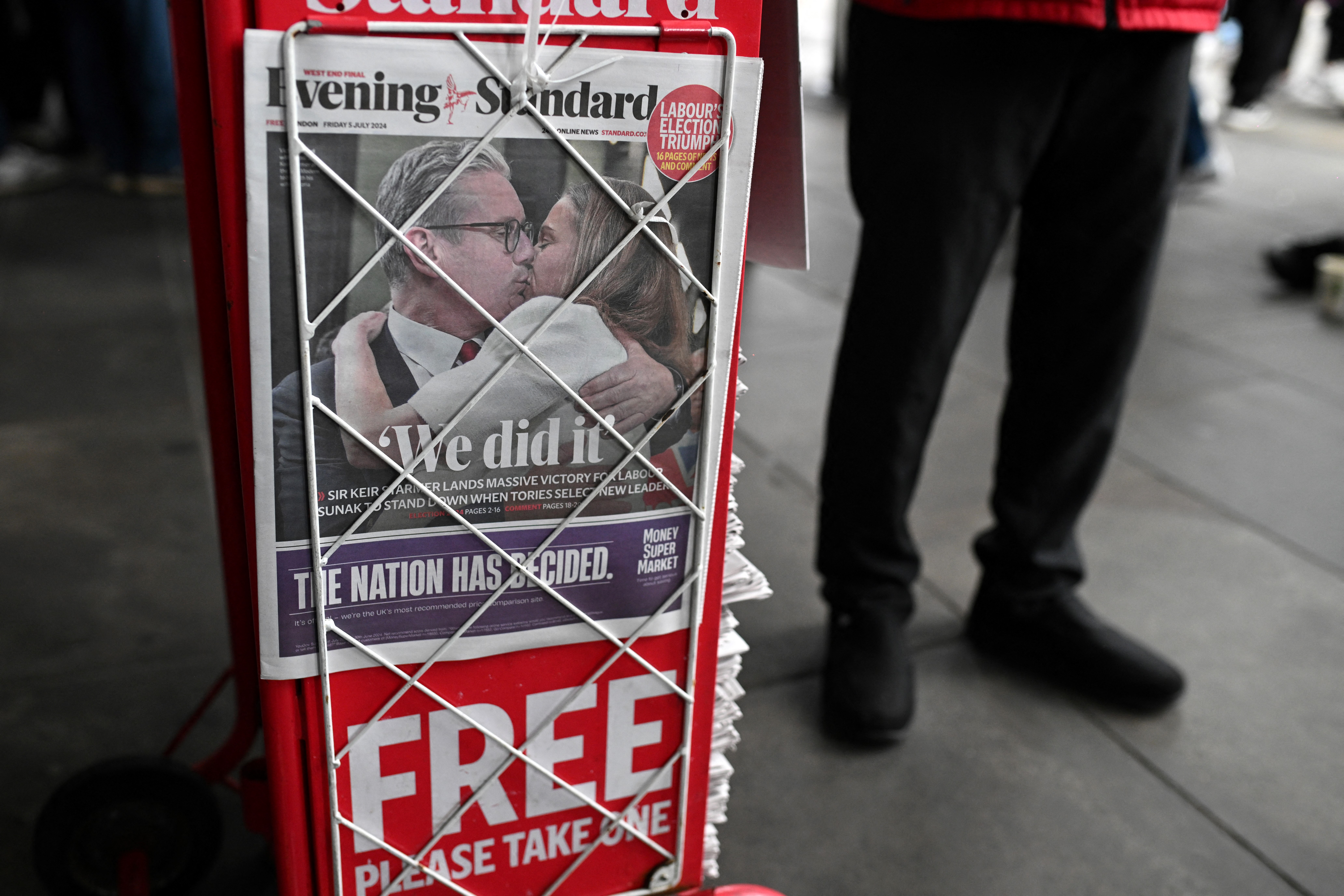Today, the electoral path to the next Tory government (if there is one) is narrower than ever. Thanks to the rise of Reform UK and the prospect of a structural split in the right-wing vote. Yet whilst most commentary has focused on Nigel Farage’s success in the so-called Red Wall, just as worrying for Conservative strategists is that Reform is now outpolling the Tories in London.
Indeed, perhaps it ought to be more worrying. The Red Wall, after all, is about rebuilding Boris Johnson’s path to an overall majority; London is more a question of outright survival. If Reform can supplant the Conservatives in this country’s most metropolitan region, it can probably do it anywhere.
Yet whatever Farage’s undoubted political skill, his dramatic challenge to the world’s oldest democratic political party wouldn’t be possible without unwitting inside help. The Conservatives’ position in the capital has been visibly eroding for years, and few in the party have stirred themselves to action or, perhaps, even noticed.
The sheer extent of the change is remarkable. It’s hard to believe now that in 2010, the Conservatives were seriously targeting Tooting, where Labour last July racked up a majority of almost 20,000.
In 2010, when David Cameron failed to secure an overall majority in Parliament, the Conservatives returned 28 MPs in London. (The London seats the Tories lost in 2015 – Ealing Central and Acton, Enfield North, Ilford North, Brentford and Isleworth – reads like the map of a lost political Atlantis.) In 2019, Johnson secured a national landslide with just 21 seats in the capital.

Last May, the Tories returned just nine – and that was after some lucky escapes. Iain Duncan Smith was saved by a split in the left-wing vote; Peter Fortune won Bromley and Biggin Hill (where the Tories used to rack up five-figure majorities in its predecessor seat) by just three hundred votes.
London constituencies held by Conservative MPs
- Bromley and Biggin Hill
- Chingford and Woodford Green
- Croydon South
- Harrow East
- Hornchurch and Upminster
- Northwood and Pinner
- Old Bexley and Sidcup
- Orpington
- Romford and Ruislip
What happened? The dramatic reversal of fortune between 2015 and 2017 is proof enough that Brexit is part of the answer, especially in places such as Richmond Park where the Tories briefly supplanted the Liberal Democrats.
But that alone can’t explain it. Four in ten Londoners who cast their ballots in 2016 voted to leave the European Union. Even if some of them changed their minds, that’s more than enough support to maintain the Conservatives as London’s second party – as in 2019, when Johnson took just under a third of the capital’s vote.
For some Conservative MPs, the capital seems to embody everything they dislike about Britain
The bigger problem is that the Conservatives have not made a distinct, appealing pitch to Londoners. To some MPs, the capital seems too often to embody what they dislike about Britain. It’s perfectly fair to attack Sadiq Khan’s record on things like fare dodgers, as Robert Jenrick did last week. But there is more to London than crime.
Another problem seems to be simple neglect. Too few people at the top of the party really seem to grasp that they have a discrete ‘London problem’, nor has there been any effort to let the London Conservatives develop into a coherent force which might identify them.

Susan Hall’s candidacy for mayor last year prompted one commentator to ask why the Tories had “given up on London” by not running someone more high-profile. But this overlooks the real problem: the original favourite was Daniel Korski, a former Downing Street special adviser, who had to withdraw following allegations of sexual misconduct.
I’ve spoken to several Tories in London who think the party tried to stitch up the selection (it remains remarkable that Paul Scully, then Minister for London, was excluded from the shortlist to be the party’s candidate) whilst ignoring the obvious dangers of Korski’s candidacy.
The Conservatives’ woeful position in the capital, and in our other major cities, is not inevitable. Right-wing parties in countries with similar cultures and political systems, such as Australia and New Zealand, have managed to remain competitive with urban electorates. In Britain, by contrast, our overpriced and overcrowded cities now radiate angry voters out into their commuter belts – failure in cities now threatens Tory MPs in once-safe Shire heartlands.
But the party will never recover if it doesn’t start at least trying to articulate an appealing message to what could, in terms of both scale and culture, be considered the fifth Home Nation. London has a huge number of hard-working, relatively high-income voters; it should not be beyond the wit of a centre-right party to make them an appealing pitch.
Henry Hill is deputy editor of Conservative Home







